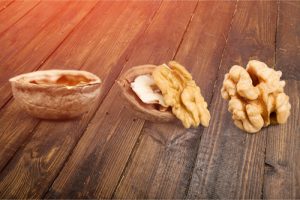9 Best Foods for Neuroprotection

Neuroprotection seems to be the new health freak buzzword, but is it all hype? Read this article to the end to understand why this is a big deal and which natural foods support this mechanism.
Neuroprotection refers to the mechanism used to protect brain cells from deterioration. Researchers have spent lots of time and money in finding novel therapies for brain protection. In the process, they have discovered that foods have an immense potential to protect the brain from degeneration as well as support healing and recovery of brain cells and tissues.
This article will review the best nine foods that protect your brain. But before getting to that, let’s first understand why our brain degenerates.
What Makes Our Brain Deteriorate?
A couple of factors are responsible for neurodegeneration. While some factors are yet to be discovered the common ones include:
1. Oxidation by free radicals
Chemical reactions that occur in our bodies may trigger the formation of electrically charged particles known as free radicals. When these free radicals are in excess, they cause oxidative stress which is a trigger for neurodegenerative disease.
2. Inflammation
Inflammation in the brain will trigger an immune response which may cause damage to brain cells. Inflammation can occur as a result of disease or brain tissue injury. This has been linked to degenerative diseases such as Parkinson’s disease.
3. Accumulation of Iron
Excessive build-up of iron in brain cells may cause excitotoxicity or over stimulation of brain cells. This may result in the death of brain cells.
4. Accumulation of Proteins
Accumulation of proteins such as tumor necrosis factor (TNF) has been linked to certain degenerative diseases.
You can look at this article to get a better understanding of how neurodegeneration occurs. But with the little knowledge shared above let us look at how foods can protect the brain from damage.
Do Foods Heal the Brain?
The brain needs energy and nourishment in order to function optimally. Different foods replenish energy in the brain; they also help in repairing and building new cells. Without these important foods, the brain will be deprived of the fuel it needs to function daily.
Not all foods have a direct effect on the brain, however a few foods play critical roles in the nourishment of the brain. Here is a list of nine such important foods.
Which Foods Heal Your Brain?
1. Fatty Fish
You have probably heard the theory that eating fish makes you smarter. Well, there is a lot of truth to this narrative, and here is the background to this belief.
60% of the brain is composed of fats and half of these are omega 3 fats. Omega 3 fats are essential for building brain cells and grey matter in the brain. Grey matter is essential for decision making, memory formation and emotions.
Fatty fish are particularly great for obtaining omega 3. Consider the following fish types: mackerel, salmon, herring, oysters, sardines, and anchovies.
2. Walnuts
Walnuts are a rich source of omega 3 fats as well as essential vitamins. They are especially useful in delaying cognitive decline that comes with aging. Lastly, they contain polyphenols which have anti-oxidizing properties.
3. Beans
Beans are packed with folate which is important for the development of the brain. Folate deficiency has been linked to neurological disorders. A study published in Nature Reviews Neuroscience showed that beans provide more folate than any other food.
4. Avocados
Avocados provide a rich source of mono-unsaturated fats which increase blood flow to the brain. They also contain vitamin B, C, E, folate and copper which are essential for maintaining nerves in a healthy state. Vitamin B is great at relieving stress and lowering blood pressure.
5. Dark, leafy vegetables
Dark leafy vegetables such as spinach, kale and collards offer lots of beneficial vitamins and they are high in plant antioxidants. They also have a minimal amount of omega-3 fats.
6. Eggs
Eggs are high in tryptophan and choline both of which play a crucial role in the proper functioning of brain cells. Choline is the precursor of another important compound citicoline which is prevalent in brain cells. Citicoline helps the brain cells to utilize the glucose that is available to them.
Eggs are also useful in raising good cholesterol levels and reducing the amount of bad cholesterol.
7. Berries
Berries are rich in phytonutrients and flavonoids which have great antioxidant properties. When free radicals accumulate in the brain, they cause damage to nerve cells. Research has shown that flavonoids are important in improving cognitive skills, improving learning and memory retention. Berries have also shown potential in reducing inflammation in the brain.
Lastly, berries are a rich source of resveratrol which improves brain connectivity in older people.
8. Pumpkin Seeds
Most people throw out pumpkin seeds and eat the flesh of the pumpkin for obvious reasons – carotene. But what they do not know is that the seeds have equal therapeutic benefits as well. Pumpkin seeds have antioxidizing properties that protect the brain from free radical damage. They contain zinc which is crucial for nerve signaling. Zinc deficiency will trigger the onset of neurodegenerative diseases. They also contain magnesium and copper which enhance brain function.
You can add these seeds to smoothies and salads.
9. Dark Chocolate
Dark chocolate is rich in flavonoids which have great antioxidizing properties. In one study, participants who consumed chocolate regularly had greater memory retention than those who did not. Chocolate is great for improving mood and stimulation as well.
Factors such as genetics play a key role in the development of degenerative diseases. But incorporating these foods into your meal plan will go a long way in keeping brain cell deterioration at bay.
Links
- https://www.medicalnewstoday.com/articles/53700.php
- https://www.healthline.com/nutrition/7-health-benefits-dark-chocolate
- https://www.ncbi.nlm.nih.gov/pubmed/10400551
- https://www.ncbi.nlm.nih.gov/pmc/articles/PMC2805706/
- https://www.medicalnewstoday.com/articles/303864.php
- https://www.eggnutritioncenter.org/topics/nutrients-in-eggs/
